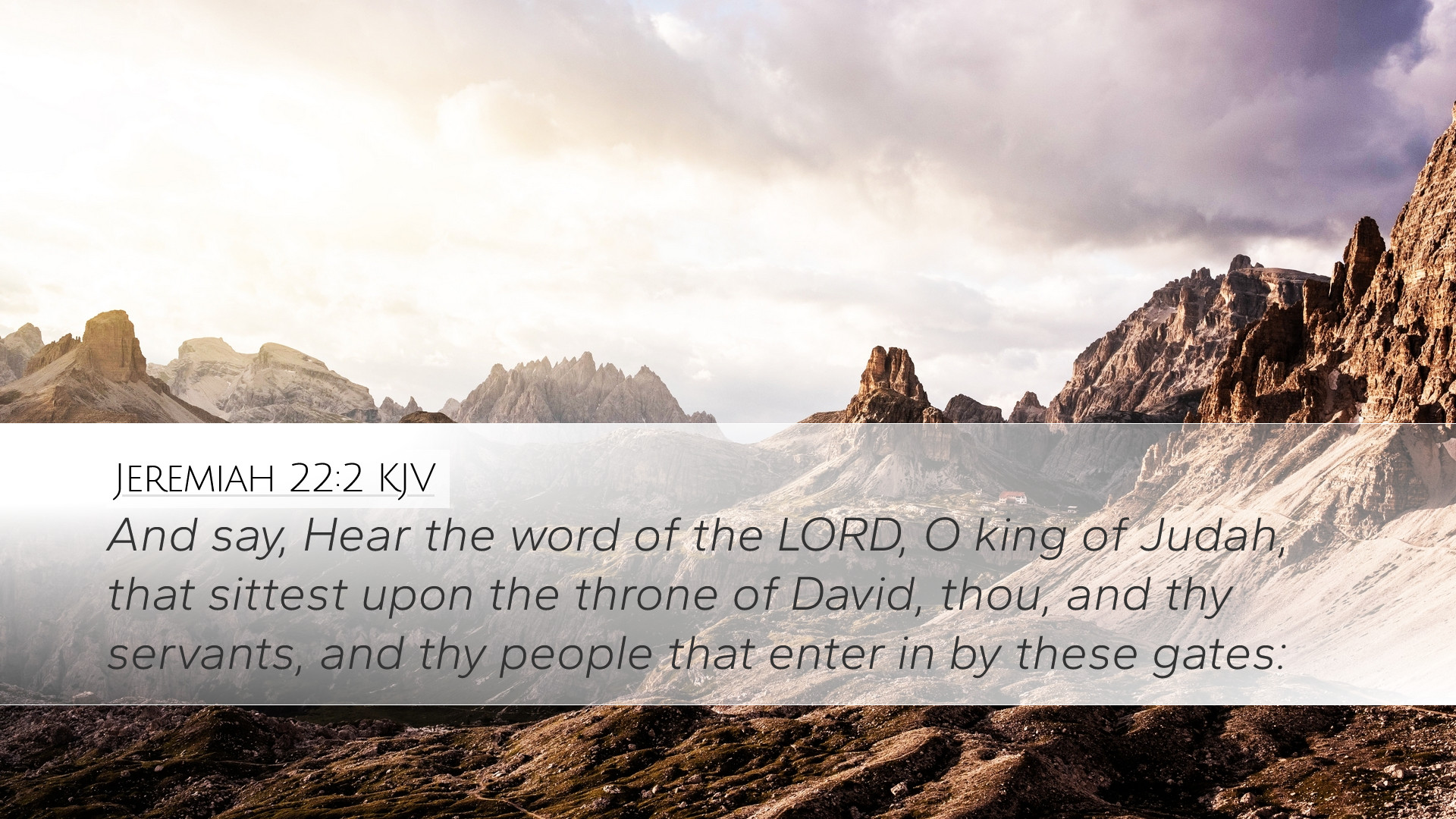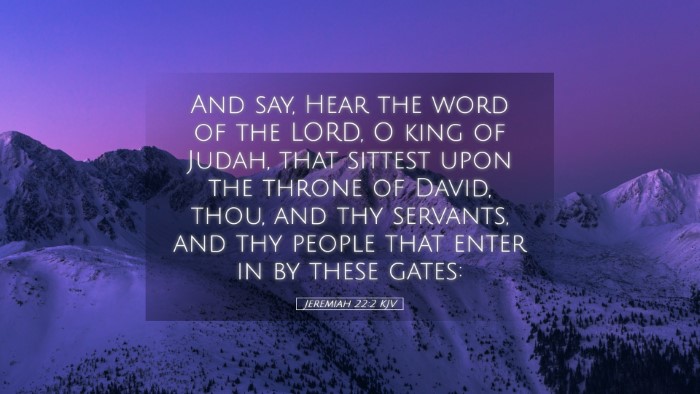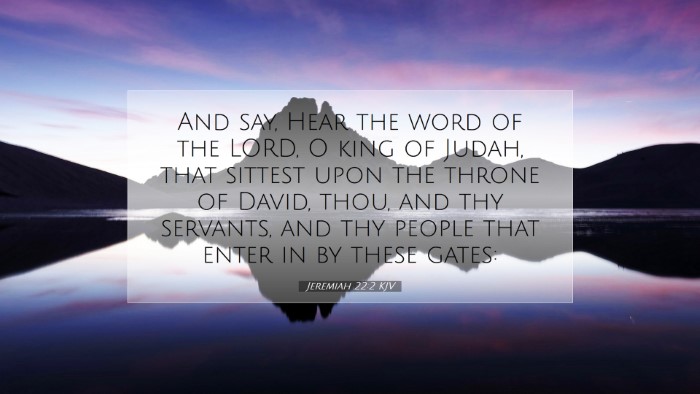Commentary on Jeremiah 22:2
Verse: "And say, Hear the word of the Lord, O king of Judah, that sittest upon the throne of David, thou, and thy servants, and thy people that enter in by these gates:" (Jeremiah 22:2)
Introduction
This verse serves as a direct address to the king of Judah, emphasizing the importance of heeding God's word. It reflects God's desire for His leaders and people to listen and respond appropriately to divine instruction. The context of this message is essential for understanding its implications for governance, accountability, and righteousness.
Contextual Analysis
Jeremiah was a prophet during a turbulent time in Judah, marked by moral decay and impending judgment. The verse is part of a larger portion of scripture where Jeremiah is tasked with delivering messages that highlight the failings of the Jewish monarchy. The call to "hear" implies not just physical hearing but an obedient response to God’s commands.
Matthew Henry's Commentary
Matthew Henry elucidates that God's address to the king is both a privilege and a responsibility. The mention of "David's throne" signifies the lineage and covenant that God established with David, implying that the king must uphold these sacred obligations. Henry stresses that the king, by virtue of his position, has a special duty to be attuned to God’s voice and lead the people righteously.
Albert Barnes' Insights
Albert Barnes notes that this message is not only for the king but extends to "thy servants, and thy people." This collective address reinforces the communal responsibility toward God's commandments. Barnes argues that the focus on those who "enter in by these gates" symbolizes the broader community interacting with the king's governance. The gates represent the entry point for both authority and accountability in civic life, calling all to adherence to divine expectations.
Adam Clarke's Perspective
Adam Clarke emphasizes the gravity of God's message by underscoring the title "king of Judah." Clarke posits that it is significant that the king is identified in relation to the throne of David, which carries with it a historical weight and divine backing. Clarke further elaborates that the addressed audience signifies an urgent call for repentance and moral rectitude, as the very stability of the kingdom depends on their alignment with God’s will.
Theological Implications
Jeremiah 22:2 poses profound theological reflections on leadership and its moral obligations. It underscores the principles that govern just leadership, suggesting that societal well-being is intrinsically tied to the fidelity of its leaders to divine decrees.
- Divine Authority: The passage establishes that all authority is ultimately derived from God. Leaders are stewards of divine trust.
- Community Responsibility: The responsibilities discussed are not only individual but communal; the fate of the nation rests upon collective obedience.
- Call to Righteousness: This verse beckons leaders and citizens alike to align their actions with God's commands, ensuring the nation's moral compass points toward divine law.
Practical Applications
For pastors and spiritual leaders, this verse serves as a reminder of the sacred duty to guide their congregations in accordance with God’s word. For students and theologians, it offers a rich case study on the intersection of faith and politics. Biblical scholars may find a deep well of insights regarding historical context, hermeneutics, and sociopolitical analysis within the verse.
For Pastors:
- Emphasize the importance of prayer and seeking divine guidance in leadership roles.
- Encourage congregations to engage with Scripture as a collective community effort.
- Address societal issues with a conscience rooted in biblical teachings.
For Students and Theologians:
- Study the historical implications of Judah's monarchy and its dynamics with prophetic voices.
- Explore themes of justice, mercy, and accountability as central biblical tenets.
For Biblical Scholars:
- Engage in textual criticism to explore variations and interpretations of this verse across different translations.
- Analyze the socio-political context of Jeremiah's prophecies to understand its relevance.
Conclusion
Jeremiah 22:2 remains a critical reminder of the relational dynamics between God, leaders, and their communities. In a world where authority is frequently challenged, the call to righteousness and accountability found within this verse is timeless. As followers of Christ, both leaders and laypeople are called to reflect these biblical principles in their lives and societies.


